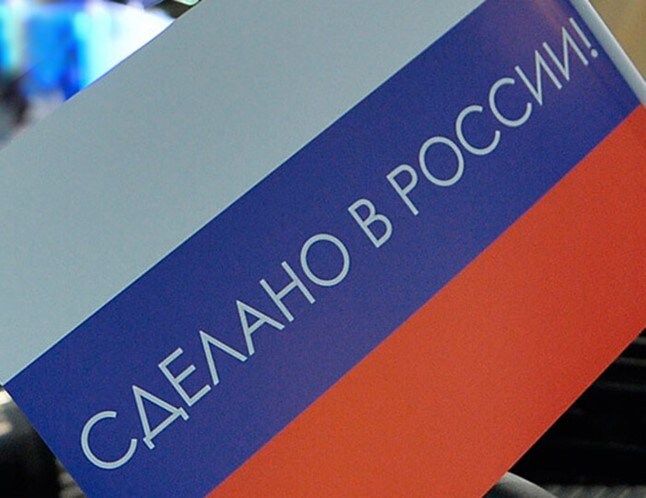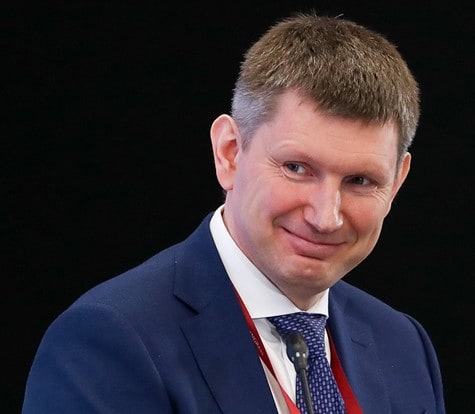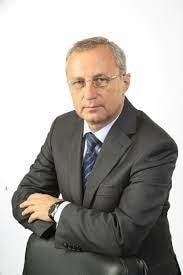Russian officials and their mouthpieces in the media have responded in diverse way to successive Western sanctions upon Russia. They take pride that the Russian economy has defied predictions that the sanctions would bring Russia to its knees. They cite Russia's growing trade ties with countries that have refused to embrace the Western sanctions policy on Russia. Another reaction views the sanctions as a blessing in disguise. Back when Russian energy exports flowed to the West at lucrative prices, Russia became hooked on Western products and technology and neglected its own technological sovereignty. Now, with access to Western products blocked, Russia will fall back on its own resources and even emulate the Soviet Union in its ability to build up an industrial and scientific base despite Western efforts to isolate the regime.[1]
Newspaper Nezavisimaya Gazeta recently ran two articles by business journalist Olga Solovyeva seeking to puncture such nostalgic optimism. Solovyeva pointed out that the Russian government has scaled down efforts at import substitution, calling total import substitution unreasonable. It recalled that the programs to achieve import substitution and technological sovereignty began already in earnest in 2014 after Russia annexed Crimea and achieved meager results. It pointed to objective difficulties that will make these goals an exceedingly lengthy if not an impossible process. Finally, it claimed that the policy will cause distortions in the economy by subsidizing companies running at a loss, and will cripple Russia's ability to compete in the world market.
Below are the two articles:

Made in Russia (Source: Novomoscow.ru)
The first article, titled "Technological Sovereignty Will Lead to Zombie Companies", argues that the result of the technological sovereignty drive has actually been the "primitivization" of the Russian economy and a growing dependence on China and even Iran as suppliers of technology:[2]
"Achieving Russia's technological sovereignty will require a serious increase in investment in the development of priority projects, argued Maxim Reshetnikov, Head of the Ministry of Economic Development during a meeting with representatives of Delovaya Rossiya [Business Russia an All-Russian public organization]. 'Our investment requirement is of a fundamentally different amount. We have... conducted an analysis of investments in terms of how much is currently being invested in the industries where these projects exist. The figure is somewhere around 550 billion rubles. Then we calculated how much investment we need in these sectors in order to achieve the technological independence parameters that we have set as our economic growth goal. We need 2.5 trillion rubles per annum in terms of investments. That is, we have a disparity. We need to increase investment in these sectors up to 2 trillion rubles a year,' said Reshetnikov."

Maxim Reshetnikov (Source: Rbc.ru)
"The stances of Russian officials on the need for import substitution has undergone a definite evolution. 'We were forced to move to import substitution, where we had not previously thought of... I believe that if we had not been compelled to do it, we would never have done it,' said Russian President Vladimir Putin this spring. Last August, the head of state stressed that 'it is impossible to achieve a total import substitution,' but that technological sovereignty must be reached in the most critical sectors, production processes and technologies.
"Last summer, the Minister of Industry and Trade Denis Manturov also stressed that Russia does not at all set the goal of full import substitution in industry. However, there are sectors where Russia has to ensure import substitution as part of national security, while in other sectors international cooperation is maintained, said he. But scientists from the Russian Academy of Science's [RAS] Institute for Economic Forecasting observe a big difference between the slogans and the real processes of import substitution in Russia. They note a gradual 'primitivization' of the Russian economy.
"'The fundamental capability of purchasing products or services on the world market that are much cheaper and of higher quality than those offered by domestic industry demonstrated its genuine potential, the level of available technology. The natural consequence was an unprecedented reduction of production volumes in the 1990s. Since the beginning of the 2000s, the favorable foreign economic conditions and the unprecedented scale of the oil and gas rents transformed the previously abstract possibility of buying goods on the world market into an enticing reality.
"The issues of modernization of production, cost reduction, quality growth, and strengthening the market position have been solved mainly by supplying foreign goods and services,' Boris Lavrovsky, professor at the Institute of Economics and Industrial Engineering of the RAS noted in his article. He also recalled that the state's concern about the technological backwardness has long been declarative in nature.
"The expert cites the authorities' plans to increase the share of Russia-made communications and information technology equipment on the domestic market. According to the plans for 2010, it was supposed to increase from 20-30% to 60-65%. However, already by 2015 the share of the Russian equipment in the unified Russian telecommunication network did not exceed 10%, i.e., it became even less than it was in 2001.
"It is noteworthy that today's import substitution plans in the context of the sanctions war are even more modest than in the past. For instance, between 2014 and 2020, the plan was to increase the share of domestic production in the automotive industry, from almost 100% imported vehicles in 2014 to 100 % domestic production by 2020. 'In other sectors, the goals, while not as ambitious, are very bold. For instance, in the shipbuilding industry, this indicator should change from 85.6% of market share [for imports] to 23.3%, respectively. The pharmaceutical industry, where no import substitution measures were planned at all, is a special case,' said Lavrovsky.
"He perceives the authorities' plans to increase the share of domestic production until 2024 to be much more modest than the previous ones. 'With the exception of civil aviation and pharmaceuticals, the increase in the share of domestic products in meeting domestic demand during the period of 2020 - 2024 is quite modest. For instance, in the automotive industry it was from 36.5% to 59.5%, in ferrous metallurgy - from 49.5% to 66.2% (the previous plan was to reduce the share of imports in ferrous metallurgy from 60% to 21.9%),' noted the scientist, adding that the traditionally difficult conditions of the Russian economy are now compounded by an urgent need for import substitution.
"The need to increase technological sovereignty will prompt other dangerous consequences. 'Before February 2022, economic feasibility was considered upon project launches, i.e., unprofitable projects were not implemented (the exception was made for assemblies, components and materials in critical areas that ensure national security). Now it is necessary to launch and implement planned loss-making projects on our market that driven by the vital expediency. The latter will manufacture goods that we simply must produce regardless of whether it is profitable or not,' the economist emphasizes.
"The buildup of zombie companies in the economy (i.e., industries that cannot exist without external financial support) leads to negative consequences for many sectors of the economy. 'The persistence of zombie companies leads to inefficient use of resources, inhibits the reallocation of resources to more productive firms, and reduces the availability of credit for healthy firms. The support that zombie firms receive decreases their motivation to economize on resources and adopt new technologies.
"This is exacerbated by the willingness of these firms to reduce the price of their products. The price dumping conducted on part of zombie companies disturbs the production process of other companies, increases their investment risk and the cost of attracting assets. As a result, productivity growth slows down in industries with a high concentration of zombie firms,' argued Victor Dementyev, Chief Researcher at the Central Institute of Economics and Mathematics of the RAS.
"Slogans about the need to increase technological sovereignty are heard against a background of increasing dependence on imports, this time from friendly countries.
SUPPORT OUR WORK

"In just four months, for example, Russo-Chinese trade turnover increased by more than 40% to 73 billion USD. Wherein, exports from China to Russia increased by 67.2% to 33.68 billion USD. The main products coming from China to Russia are cars and trucks, consumer electronics, excavators, microprocessor units and consumer goods.
"According to the 2022 results, trade turnover between Russia and Iran increased by 20.2% and approached a record 5 billion USD, informed the Kremlin. Iranian officials last fall noted that the volume of goods supplied by Iran to the Russian market since March 2022 had increased by 70%.
"Russian researchers, on the other hand, pointed out that Iran was becoming an industrial donor for Russia. Tehran took over part of the technological products imports from unfriendly countries (see further "Nezavisimaya Gazeta" item of 24.10.22). Experts from the Higher School of Economics estimated Russia's dependence on imports of gas turbines at 90%, as the country has no domestic production of high-capacity turbines.
"Anna Pak and Inna Andronova, economists at the Peoples' Friendship University of Russia (RUDN), point out that, in general, all the countries that make up the Eurasian Economic Union (EAEU) are highly dependent on imports from third countries. And this fact exists despite the policy pursued by the governments of the union member states aimed at developing innovative high-tech industrial production, emphasize the scientists.
"Scientists cite indicators that demonstrate the EAEU's quantitative and qualitative share in global trade in the sector of innovative industrial products. Thus, the share of home-produced machinery, equipment and vehicles does not exceed 3.82%, while at the same time imported machinery and equipment have a high share (about 43%) in domestic consumption.
"They perceive such low technological sophistication as dangerous.
'The problem of ensuring state economic security in today's geo-economic realities is becoming increasingly significant. The disruption of foreign trade relations, the search for reliable trading partners, and the construction of new logistics routes creates challenges for the economic security system not only of Russia, but also of the entire EAEU,' stressed the economists."
In her second article, titled "Nine Years of Import Substitution Have So Far Yielded Modest Results," Solovyeva cites the experiences of 2014-2023 arguing that crash drives at import substitution will not achieve their goal, and even if they do succeed, they will cripple Russia's ability to compete on the world market.[3]
"'We've managed to replace the electronic control units (which constitute a majority of the car's electronic architecture) [with home-produced analogues], we partially replaced foreign sensors, harness connectors, harness products,' claimed Deputy Minister of Industry and Trade, Vasily Shpak.
"He recalled that major foreign manufacturers of electronic control units for the automotive industry discontinued their supplies to Russia. 'In March 2022, it was decided together with car manufacturers and radio-electronics manufacturers to switch to 'sanction-resistant' [meaning components supplies of which are unaffected by sanctions] electronic control units and the unification of basic radio-electronic components, to be followed by the use of Russian components,' said the official.
"The capacity to oust imported products [from the Russian market] varies significantly across domestic industries. Only half of Russian industrial enterprises have the potential to produce import-substituting goods themselves, as demonstrated by surveys of industrial executives in 30 Russian regions. The assessed potential for manufacturing import-substituting goods is higher than others amongst drug and medications producers: every second head of this sector polled defines the potential for import substitution as high and every third - as medium. Manufacturers of machinery and equipment not included in other groups (40%), manufacturers of electrical equipment (35%), rubber and plastic products (34%), motor vehicles, trailers and semi-trailers (33%), textiles (32%), and computers, electronic and optical products (30%) are also at the top of the rating (of import substitution potential. - "NG"),' the HSE [Higher School of Economics] specialists.
"Among beverage, food or clothing manufacturers, only one head of the sector in four claims the capability to produce import-substituting products. Among producers of furniture, leather and leather products and wood processing, the percentage of positive answers is already less than 20%.
"The industries' own assessments also indicate a high demand for new domestic equipment that is not inferior in quality to its foreign equivalent. For instances, nine out of ten companies surveyed expressed a high and medium need for Russian equipment of comparable quality to foreign counterparts. Meanwhile, the greatest need for new competitive domestic equipment is aired by mining companies, 'such enterprises constitute 85% of coal mining organizations and 84% of organizations providing services in the field of mining,' noted the researchers.
"Among the manufacturing industries, the greatest demand for import substitution is recorded among the manufacture of textiles (61%), chemicals and chemical products (56%), food (55%) and clothing (54%), and pharmaceuticals and materials (50%).
"Despite the high demand for import-substituting domestic equipment, only every fourth enterprise in Russia reports enjoying access to such supplies. In terms of industry, the absolute leaders in terms of the availability of new domestic equipment (of the same quality as its foreign counterparts), are oil and natural gas production companies. But in other industrial sectors the situation is much worse. For example, the ore extracting enterprises cannot find any new domestic equipment (comparable to foreign analogues) at market at all.
"The majority of furniture manufacturers, wood processing and manufacture of medicines state the absence of quality Russian alternatives to foreign equipment (such an answer was provided by 90% of managers working in this sector). Over the past five years, new domestic or foreign equipment has been bought by enterprises at roughly the same rate. Some Russian industrial enterprises bought imported equipment on the secondary market.
"Despite the declared general import substitution policy, at some enterprises the share of foreign equipment did not decrease, but, in fact, increased. The growth in the share of new imported equipment occurred in the manufacturing segment at the enterprises producing drugs and materials, rubber and plastic goods, as well as machinery and equipment. One third of the enterprises in these industry sectors gave preference to foreign rather than domestic equipment when making purchases. The most active purchases of equipment on the secondary market took place at enterprises working in coal extraction and other minerals, as well as paper and furniture manufacturing.
"Overall, there is no doubt that Russian industry remains highly dependent on imported equipment. For instance, 65% of industry executives said that that their companies remain highly dependent on external supplies.
"In terms of industry sectors, a high dependence on imports is reported by managers of coal mining (36%), printing (40%), textiles (39%), clothing (35%) and wood processing (35%) plants.
"Meanwhile, enterprises can often only partially give up using imported components. Thus, 60% of managers assume that they will be able to partially stop using foreign equipment, components, technologies and raw materials within one to three years. Less than 10% of heads of industries polled say that their companies can completely avoid imports. In the manufacturing sector, 39% of CEOs believe that it is impossible to avoid imports of equipment and components.
"However, many officials acknowledge that reaching total import substitution is impossible and that there is no need to focus on such a task. For example, Denis Manturov, Head of the Ministry of Industry and Trade, said that he did not consider the import substitution policy in Russia ineffective.
"'We have never had any plans to substitute imports by 100%, I believe, it is simply irrational today as well, even in the current situation, when Western countries refuse to supply their units, components, materials and raw materials. There remains the other half of the world which is ready to do it,' he argued. According to the official, replacing everything overnight is, first of all, quite expensive and, second, such an approach would not produce a positive economic effect. Manturov said that total import substitution is needed in industries related to national security."

Denis Manturov (Source: Ria.ru)
"However, the inability to replace foreign equipment is an important factor, even for strategic or critical industries.
"Yevgeny Romanov, Minister of Industry and Trade of the Khabarovsk Krai, said that only 6 Superjet-100 aircraft would be produced this year due to the failure to supply imported equipment. The plan was to commission 19 planes. 'It's impossible to achieve import substitution throughout the economy as a whole. Experience demonstrates that only those import substitution programs that had a narrow industry-wide focus and relied on good domestic capacity were successful. In each of these sectors, it's possible and necessary to reduce dependence on imports.
"However, one should be aware that if in the pharmaceutical sector, reducing dependence will mean the emergence of Russian analogues of imported drugs, in turn, doing the same in aircraft or machine building sectors will mean that the share of imported components in a particular machine tool or aircraft will drop to, say, 20%. But the remaining 20% of components still render exclusively domestic-based production of the planes an impossibility,' noted Professor Sergey Bogachev of the Finance University.
"According to the expert, companies that focus exclusively on the Russian market will never outperform global corporations, whose market will be many times larger. The economist stresses: domestic analogues of imported goods will not be able to compete with them either in terms of price or quality. 'Modern production will only be efficient provided it serves a significant share of the world's population,' the professor argues.
"He believes that financial and tax methods to stimulate import substitution are ineffective. 'The effect of their application will become apparent in six months to a year, and in two or three years it will come to naught again,' argued Bogachev. During the time the state program of import substitution was in effect, it has led to a reduction in the share of imported products in the domestic market for industrial goods from 49% in 2014 to about 40% by 2020. So far, import dependence is critical in many areas."

Sergey Bogachev (Source: Library.fa.ru)
"Ruslan Nigmatulin, general director at 'Dalini' Group of Companies, believed that one of the difficulties of import substitution is the lack of 'cheap' money [affordable loans] to modernize existing and open new production facilities. 'Businesses are indebted, banks need collateral, which companies often simply do not have. All import substitution projects are expensive. We are not talking about a paltry 50 or 100 million rubles. To replace a high-quality good, one need to invest at least 500 million rubles in production,' he argued. What's more, the expert continued, 'entrepreneurs don't take the risk of launching import-substituting manufacturing lines, having no guarantee of sales, but facing competitors in the form of Chinese companies.
"The Achilles's heel of import substitution is the low share of domestic machine tool production, continued Nigmatulin. 'Although the share of Russian machine tools has increased to 30% in recent years, by 2050 it's planned to reach only 50%. The remainder will be covered by imports,' recalled the economist.
"Igor Silin, a member of the 'Delovaya Rossiya,' general council also doubts the possibility that domestic enterprises can substitute for foreign components production. 'In the production of industrial metal furniture and storage systems, we will definitely not be able to stop the usage of foreign machines for now. And a number of machines have no analogues even in China. And such alternatives are unlikely to appear. Manufacturing of such machines requires, apart from technology and software itself, a lot of components which are are also not yet produced in Russia. But without them the thin sheet metal working industry will not be able to produce their import substitutes. It's a vicious circle,' explained Silin.
"The main difficulty that imports substitution faces is that in many manufacturing sectors Russia lags far behind Western countries, especially in high-tech and industrial equipment, noted Freedom Finance Global analyst Vladimir Chernov. 'Most of the technological processes are based on delegating some of the work to foreign partners. This is a working principle in open markets and completely unviable in the current environment. Betting on the domestic market is bound to justify itself, but it may take about five to eight years,' claimed Alfa Capital company analysts."
[1] See MEMRI SD No. 10619, Russian Journalist Nikiforova: Russia Is In The Same Predicament As The Bolsheviks Were A Century Ago, Like Them We Must Adopt A Centralized Economy And Reverse The Privatization Of The 1990s, May 19, 2023.
[2] Ng.ru, May 28, 2023.
[3] Ng.ru, June 8, 2023.




